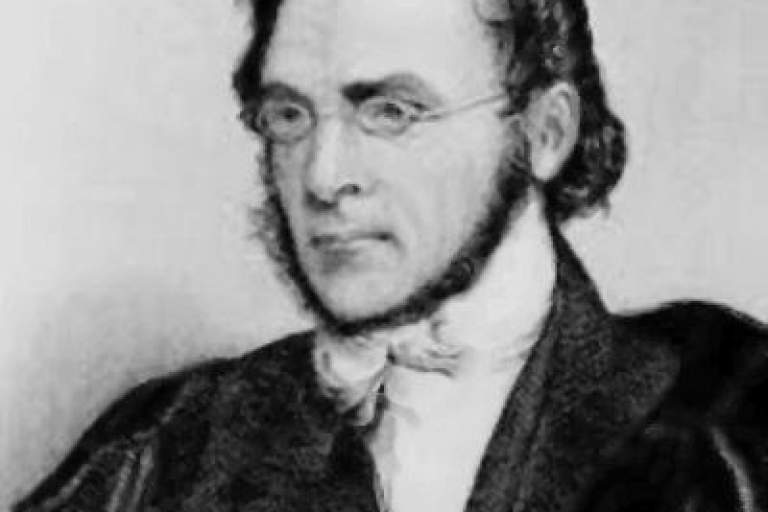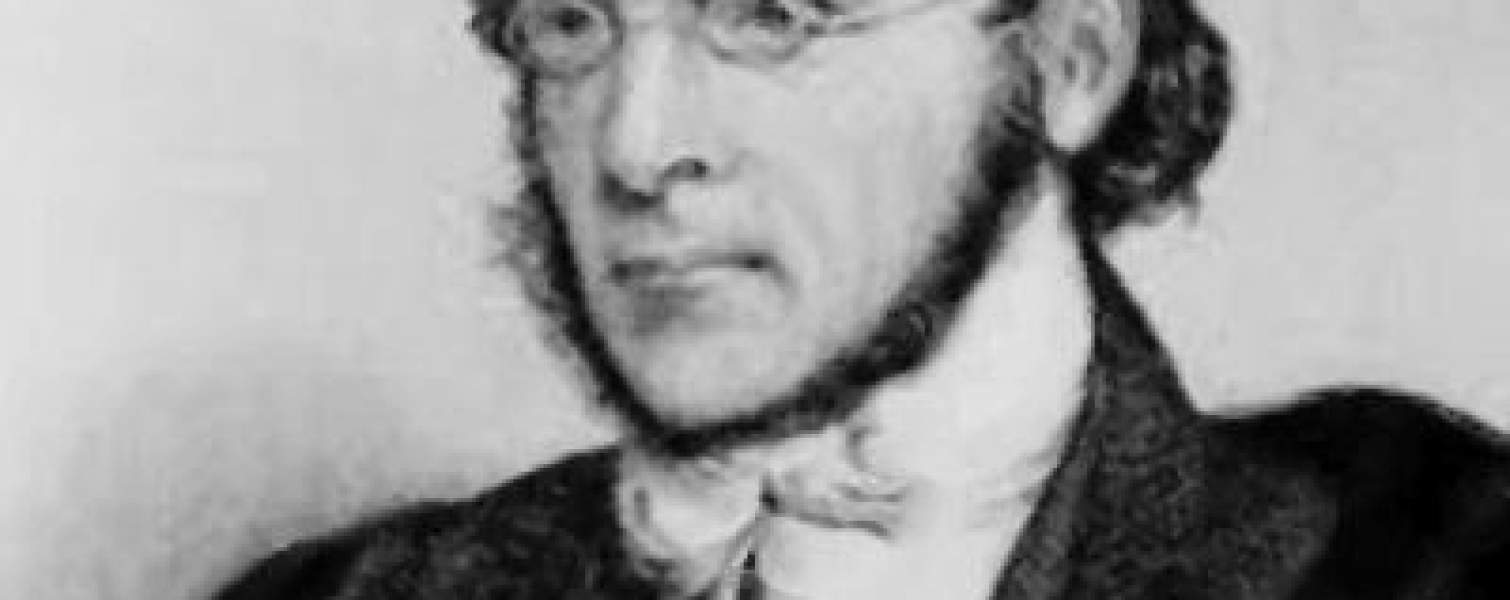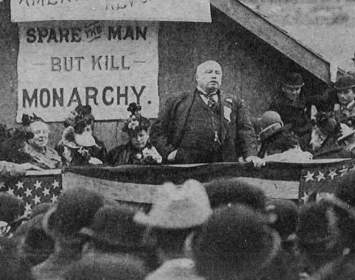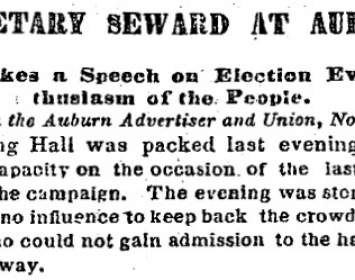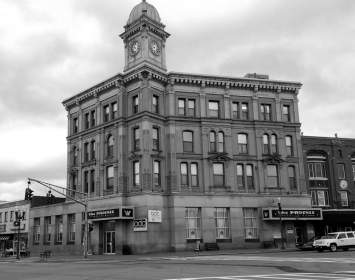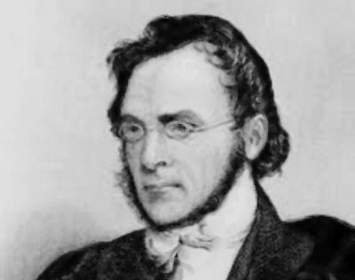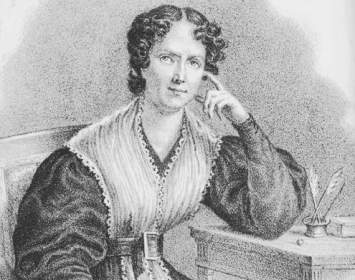In 1828, Orestes Brownson moved to Auburn, where he edited a Universalist newspaper, the Gospel Advocate and Independent Investigator. In its columns, Brownson wrote openly of his growing religious doubts. More conservative clerics labeled him “a secret agent of infidelity,” and by October 1829 one of them managed to buy the newspaper out from under Brownson.
In November 1829, the best-selling authoress, abolitionist, freethinker, feminist, and sex radical Frances "Fanny" Wright spoke in Auburn at Corning Hall. She delivered one of her standard addresses, "On the Nature of Knowledge." Brownson attended one of these lectures during one of his several crises of faith. He had met Wright not long before, after she gave an antislavery lecture in Utica; on this occasion they met again and became friends. The friendship appears to have played a role in Brownson's third and most public period of atheism. Within days of their Auburn meeting, Brownson became a corresponding editor of Wright’s freethought newspaper, The Free Enquirer. He could not long maintain his unbelief; by the fall of 1830, he had severed his ties with The Free Enquirer and begun to preach as a Unitarian.
Brownson wavered between religion and social activism until 1844, when he formally adopted Roman Catholicism. He spent the rest of his life as a politically conservative Catholic intellectual, establishing a significant historical reputation. But for two exciting years, before fear of the void pulled him back to liberal religion and ultimately shunted him toward traditional Catholicism, Orestes Brownson’s brilliant mind belonged to freethought.
